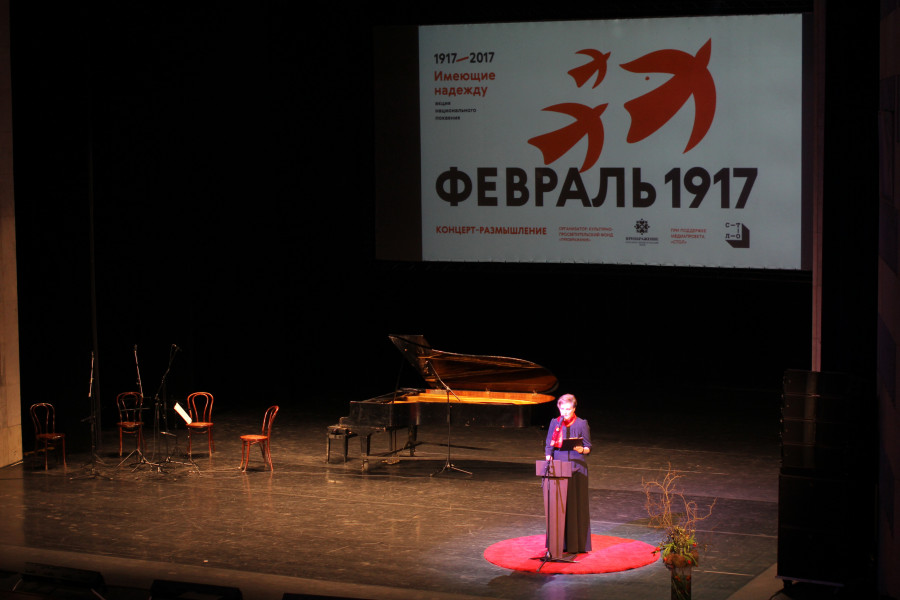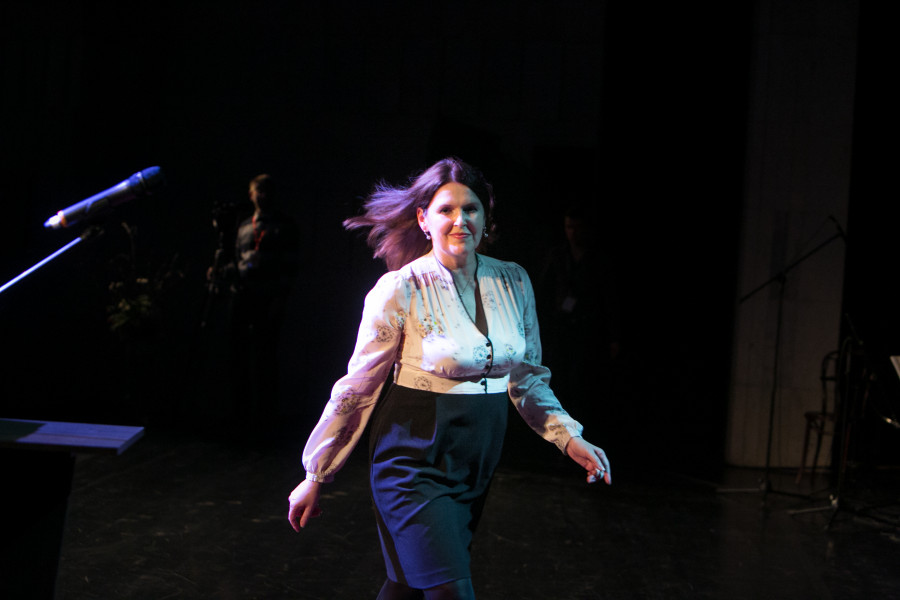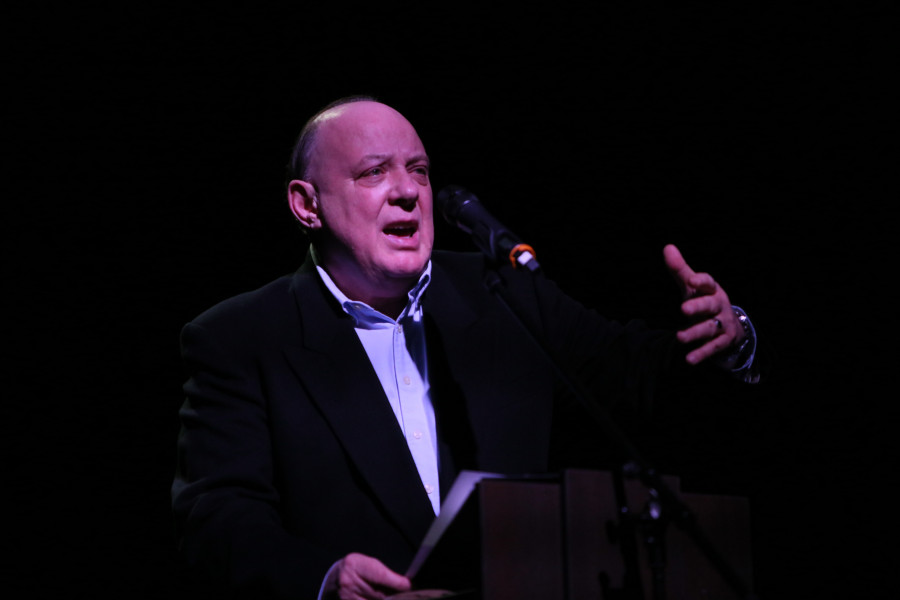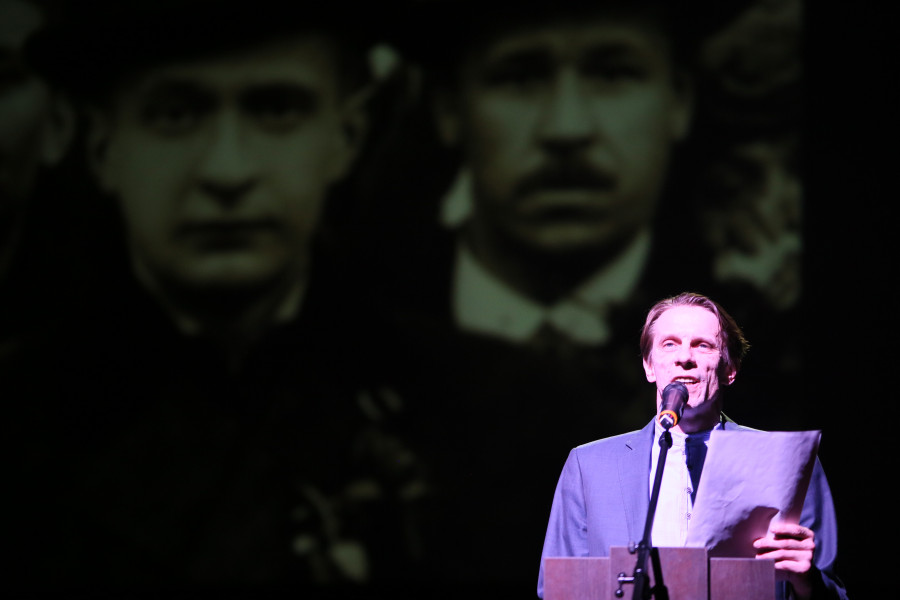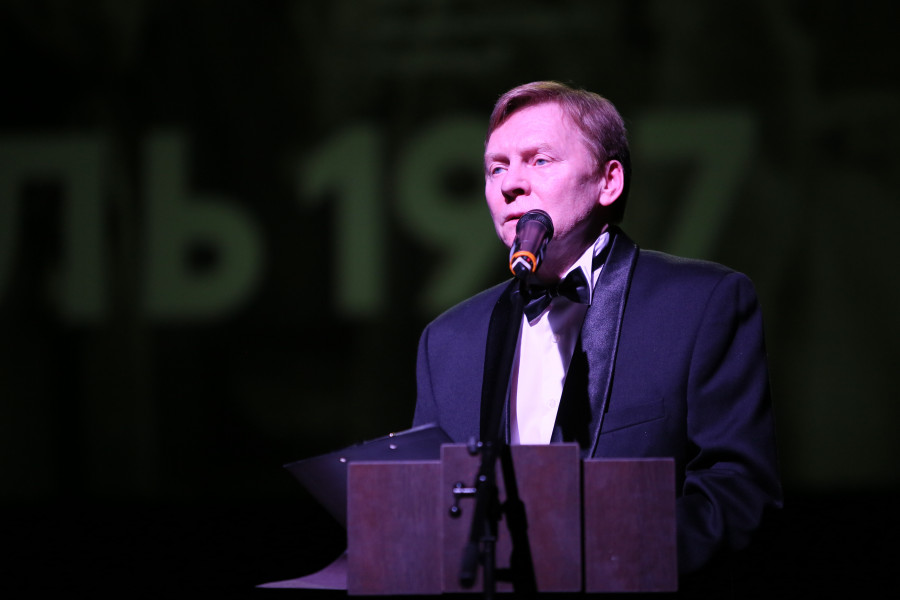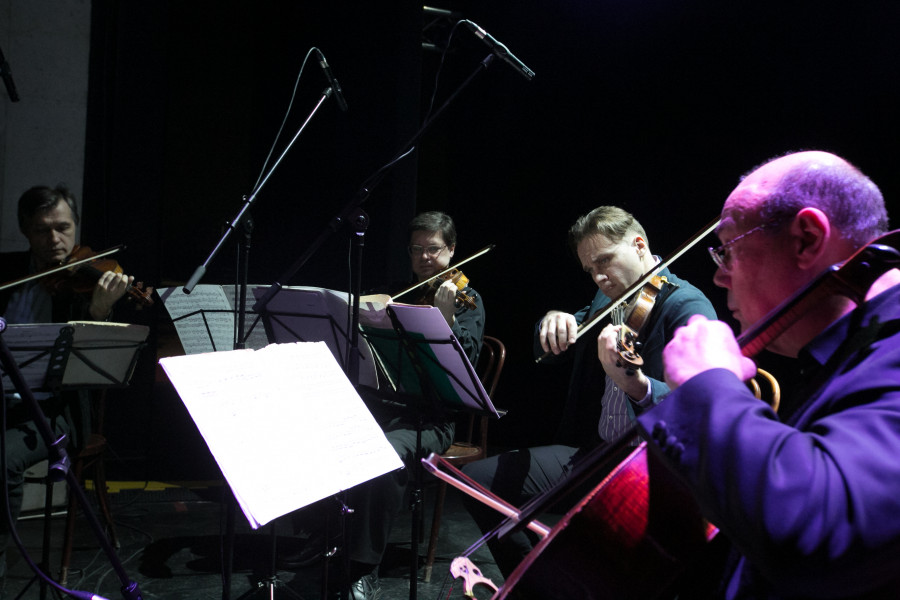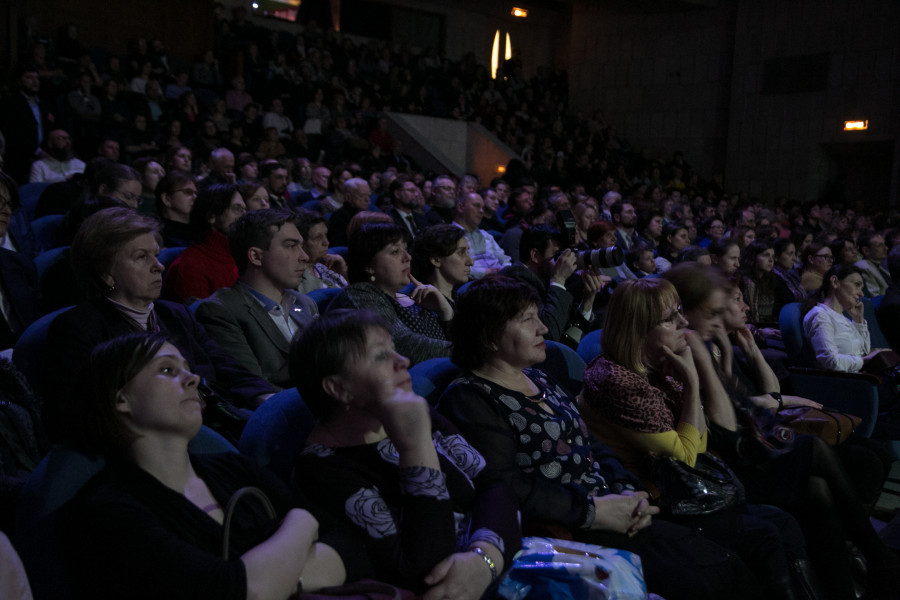Understand and Overcome: Considering the results of the Russian “mass hysteria” of 1917
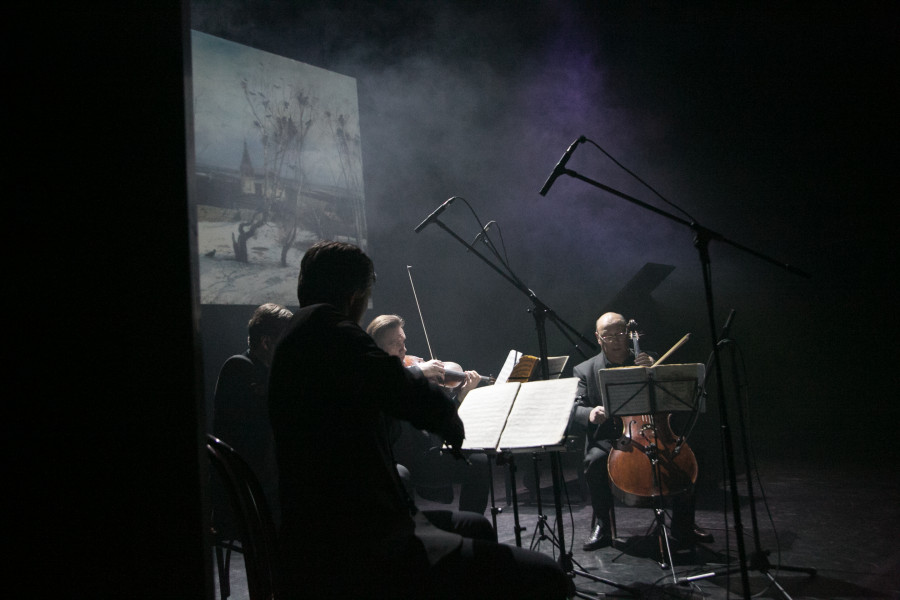
On 15 March, 2017, on the day which marked 100 years since the removal of the Tsar Nicholas II, an unusual “reflective concert” took place in the ZIL Concert Hall in Moscow. The theme of the evening was the events of February 1917 and their significance for life in Russia today.
“Sometimes we want to find the ‘tipping point’, in order to understand at what moment we fell completely off the track, in order to figure out where we should try to return to,” said the evening’s master of ceremonies, the philologist and historian, Yulia Balakshina. After the events of February 1917, Russia’s face was changed to the point of being unrecognizable. How – in what way – can we possibly communicate the spirit of that era? In order to made sense of what happened with the country and its people a century ago, the concert organizers proposed that we turn to artists, composers and writers, who were able to relate deep truths to us regarding the events of 1917.
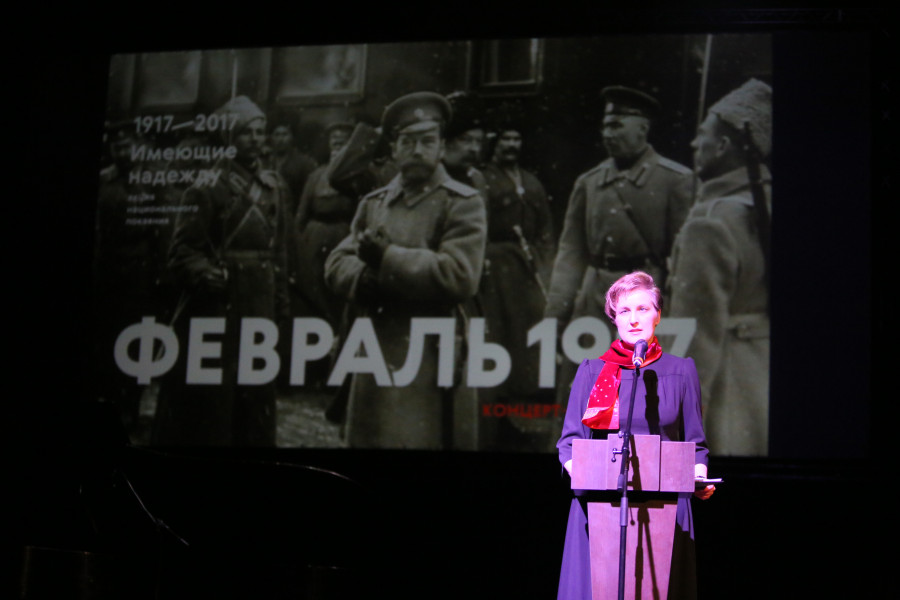
Alexander Solzhenitsyn’s historical novel The Red Wheel, the memoires of Fyodor Stepun, the short stories of Elizabeth Kuzmina-Karavayeva and Pasternak’s Doctor Zhivago – fragments of all these very different works and genres were heard from the stage, creating a three-dimensional picture of what was going on in the country a hundred years ago for the concert’s guests. All this was complemented by the poetry of Marina Tsvetayeva and Alexander Pushkin, the music of Skryabin, Rachmaninov and Shostakovich, fragments from cinema, the visual arts and photographs of historical documents.
Zoya Kaydanovskaya, an actress at the Mayakovsky theatre, Nationally-Honored Artists Avangard Leontjev and Vladimir Yumatov, Artist Emeritus Alexei Shevchenkov, Actor-Director Igor Vetrov, musicians from the Glinka State String Quartet and pianist Alexei Nabiulin, all took part in the evening’s production.
The concert is part of a broader initiative of the Transfiguration Brotherhood, entitled “Calling our Nation to Repentance”, which has been organized in connection with the hundredth anniversary of the Russian Revolution of 1917. Concert guests and participants shared their perspectives on the repentance initiative, speaking often about hope – after all the initiative’s subtitle is “those who have hope.”
“The subject of repentance is well visible in Russian culture of the early 20th c. – in the note of alarm in the mood of that time – and we hear it in the music of Skryabin, Shostakovich and Rachmaninov,” said musician Alexei Nabiulin, a laureate of various international prizes. “I hope, that classical music will stop being an interest of only the minorities. Unfortunately, those who appreciate it are a marginalized section of society, which can’t fail to be of concern.”
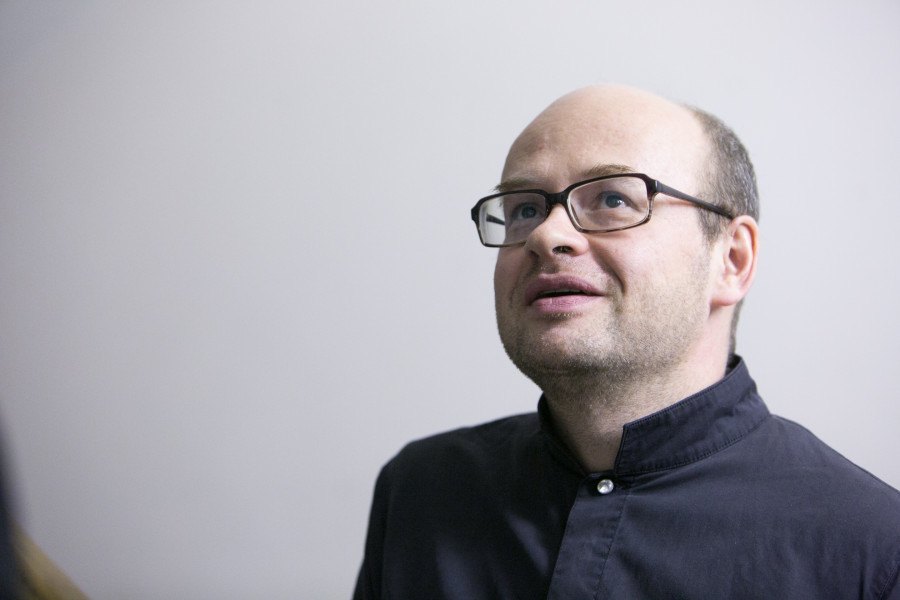
“Most of all, repentance means a realization of one’s guilt. I doubt that we have seriously thought about our guilt before history – before our nation – for that which happened in the run-up to the First World War and immediately thereafter. It would be good for all of us to understand that it’s not someone else who bears the guilt, but all of us together,” emphasized actor Avangard Leontjev. Speaking about the future, he shared his hope: “I believe that young people, in contrast to our generation, will be less fearful and more thoughtful.”
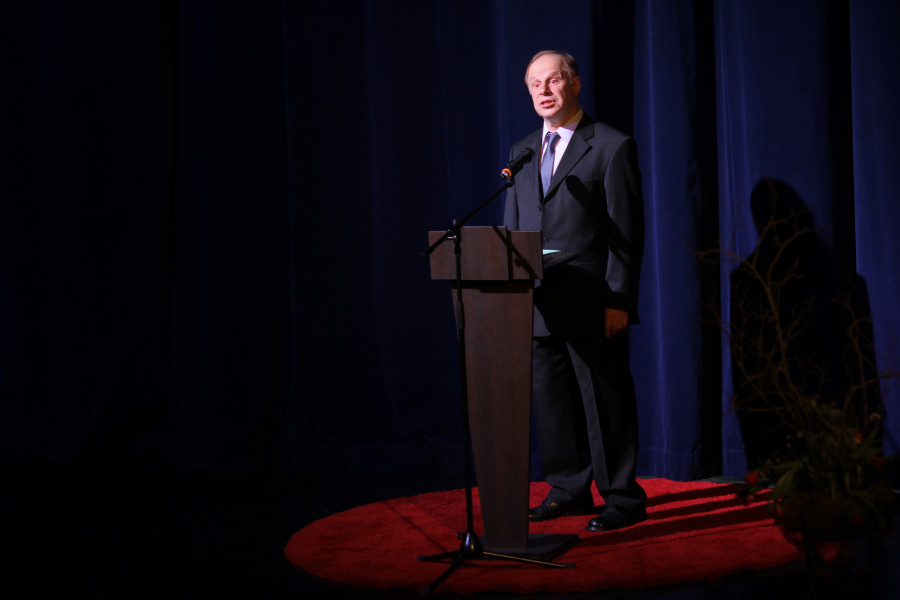
Particularly in these days, as we remember 100 years since the dissolution of the monarchy, “we need to think about what it was that brought us to October – that is to Russia’s real murderous and destructive catastrophe,” said Fr Georgy Kochetkov, the spiritual father of the Transfiguration Brotherhood. In his words, “in February-March, no one knew how it would all end, and this shortsightedness proved fatal for too many people in society, in the church – people were unprepared to face down evil.” “In all that was new people wanted to see good, but in the old, they saw evil – and this was a lie,” said Fr. Georgy.
“The first thing that anyone must do – especially someone in the church, who is far from indifferent about what is happening in our country – is to call evil for what it is, and bring repentance into it, irrespective of whether you were directly involved in the evil or just an inheritor of its terrible consequences. Perhaps you suffer from these consequences yourself, are afraid of them, don’t know how to escape, are confused or oppressed? All these things are the consequences of evil, which means we all need to repent,” Fr Georgy added.
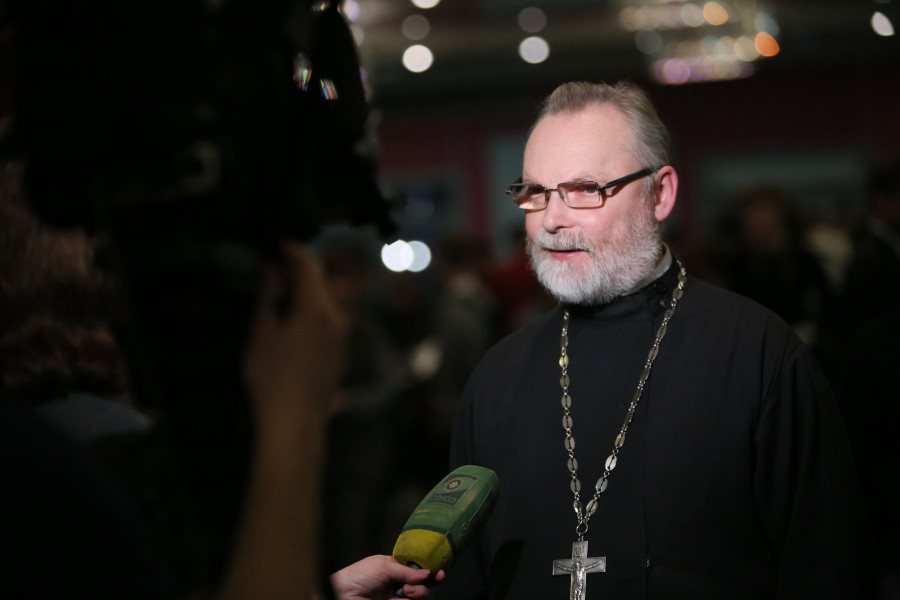
“This is a tragic day for our country,” said the leader of the Russian (Moscow) Dvorjanskoje Sobranije (Assembly of Aristocrats), Oleg Scherbachev, who came to the concert. Repentance, in his words, “is a serious internal, spiritual reversal – a realization and a change. To demand repentance, however, is of course impossible,” he stressed. “One can only repent oneself and incite repentance, praying to God that he will open the gates of repentance to us.”
He noted that the concert represented “a palette of different opinions and sensations – first and foremost of those who were eyewitnesses to the era.” “One gets the impression that by February 1917 our society had become infected with a sort of mass hysteria. There is no other explanation for the craziness that came upon us at that point. How could such a titan simply fall? We’ll never completely understand, but we need, nonetheless, to try to make some sense of it, in order to keep such a tragedy from ever occurring again,” said Scherbachev.
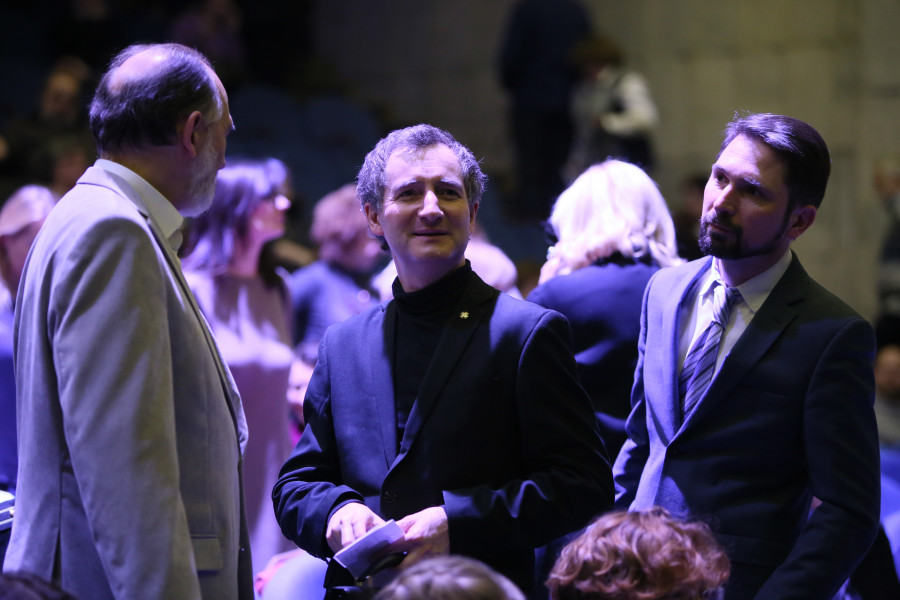
“At some point Solzhenitsyn wrote, in the voice of his countrymen addressed to the West, ‘How dare you, scoundrels!’ – we scream, scraping blood and dirt from our jackets. I think that the blood penetrated not only our jackets, but also our skin…blocking up all the pores and not allowing our skin to breathe. Unrepentant sin doesn’t stop tugging at the sinner – but not only at him, but even at his descendants. Many people understand repentance in a one-dimensional sense, imagining only the pictures of Titsian, Rubens and people weeping. But repentance is, first and foremost, hate for the sin which has been committed – for the evil – and a great desire not to repeat that sin. It is very important to be turned outwards. A sin committed in our time is impossible to redeem with tears and self-flagellation, but it can be redeemed with an act of Good,” said Yulia Ilyashenko, Professor of Mathematics at the National Research Institute of the School of Higher Economics, as she shared her thoughts.
The reflective concert was closed by Fr Georgy Kochetkov, who expressed in a very few words the feeling of deep repentance of the people before God.
Materials prepared by Sofia Rudakova, Sofia Androsenko and Arina Filippova
